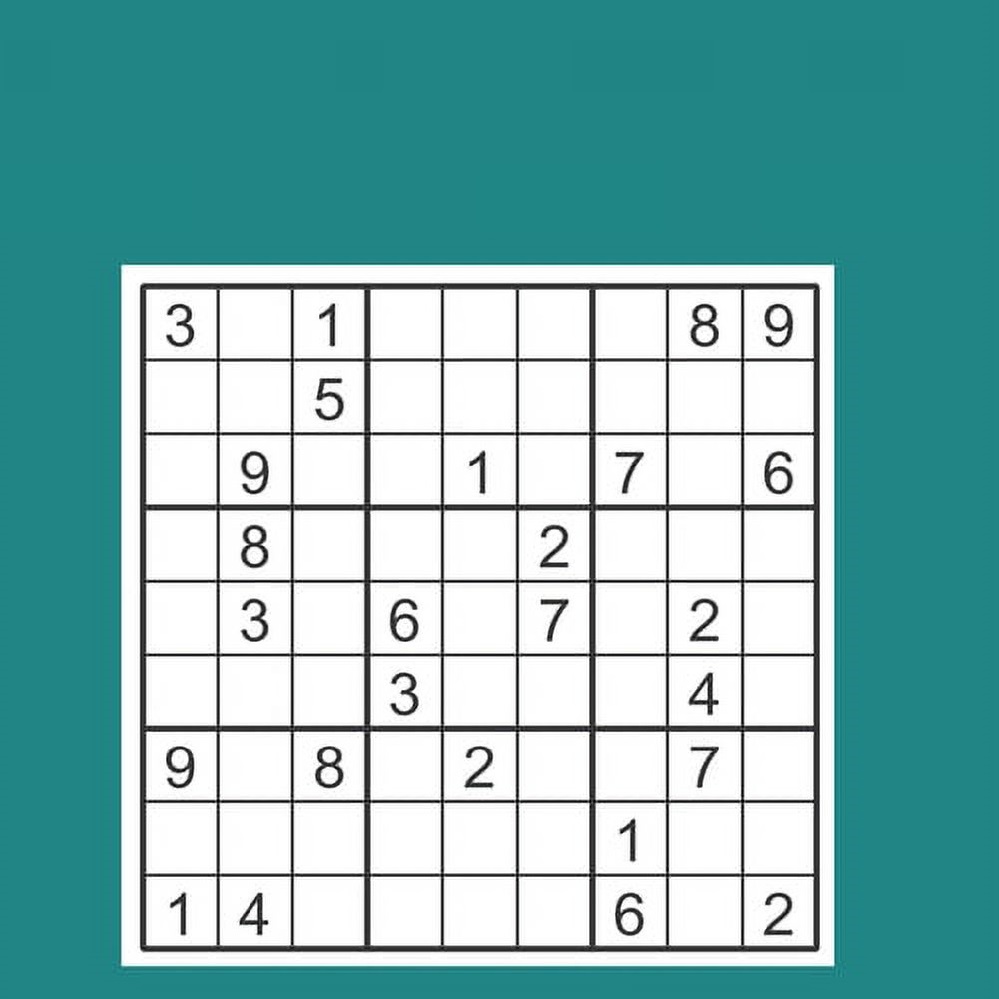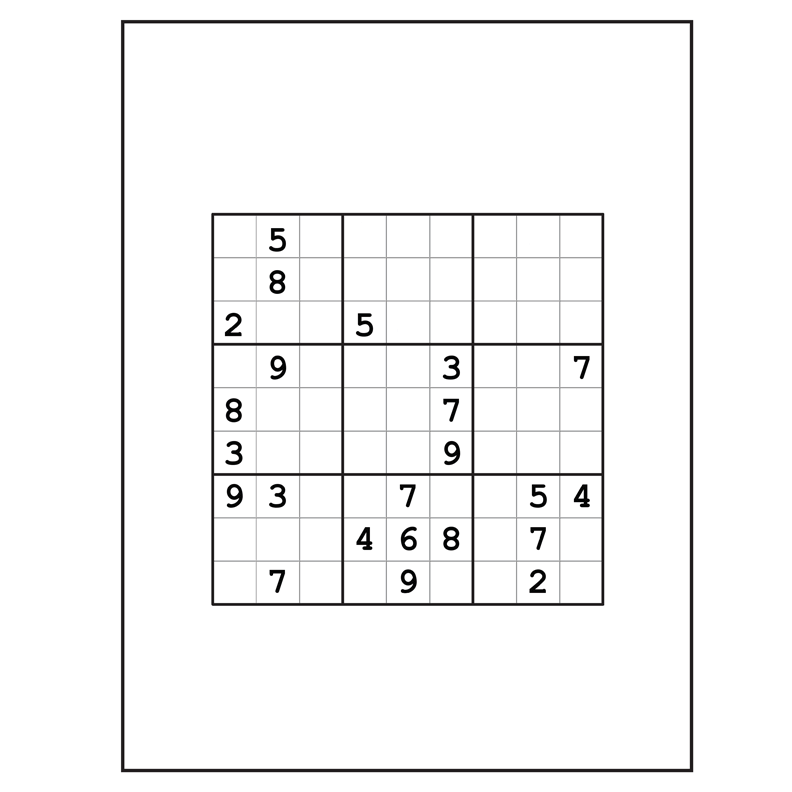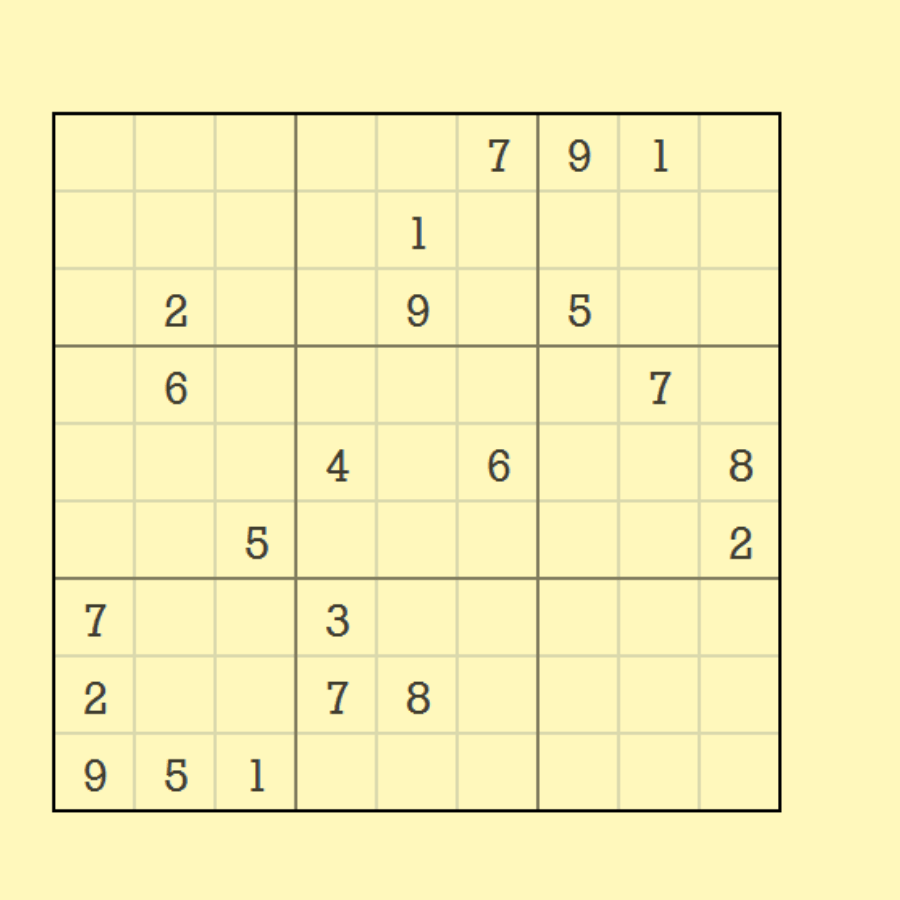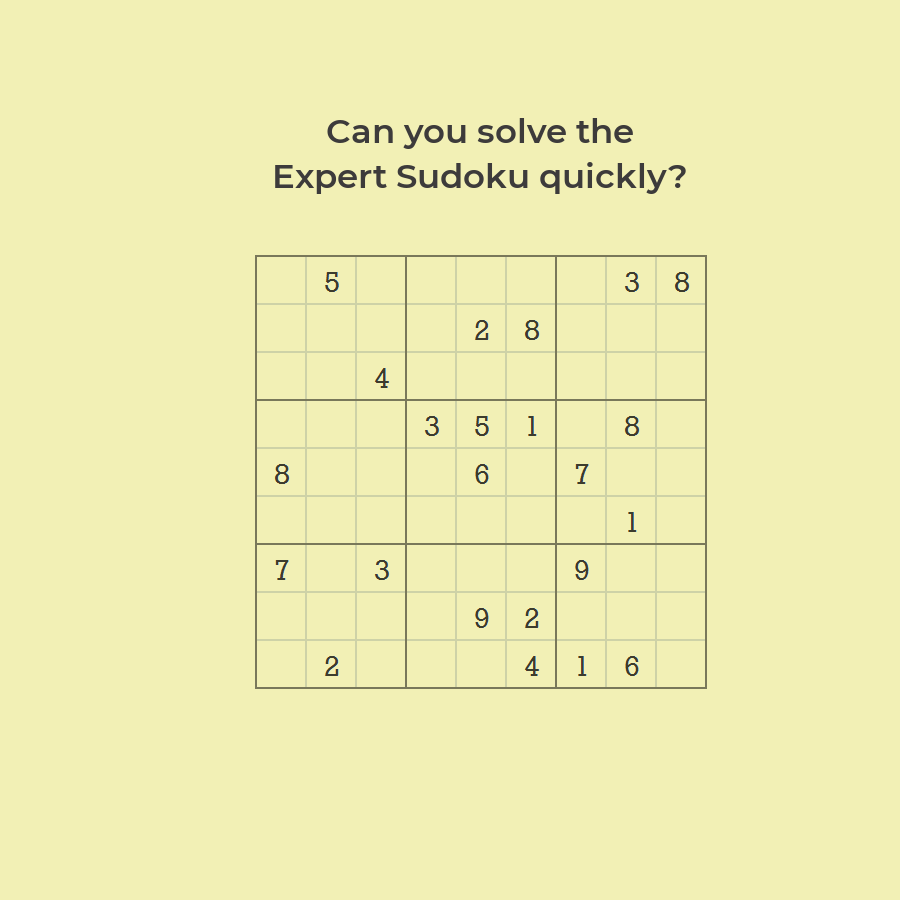Introduciton
Sudoku is more than just a number game; it is a test of logic and strategy. The thrill of filling in that last box can be addictive. For many, Sudoku serves not only as a pastime but as a challenge to sharpen the mind. Among the various levels of Sudoku, the expert level stands out as offering the greatest challenge. This article will explore expert Sudoku, covering strategies, techniques, and tips to enhance your skills.
Understanding the Basics of Sudoku
The Core Structure of Sudoku
At its core, Sudoku consists of a 9×9 grid divided into nine 3×3 subgrids, also known as regions or boxes. The objective is simple: fill each row, column, and box with the numbers 1 to 9, without repeating any number in the same row, column, or box. The puzzle begins with some numbers already filled in, providing clues to help you solve the rest.
Skill Levels in Sudoku
Sudoku comes in multiple levels of difficulty: easy, medium, hard, and expert. Easy Sudoku puzzles often have more filled boxes, making them more accessible for beginners. Intermediate levels provide a bit more of a challenge, while hard puzzles often require specific strategies to solve. Expert Sudoku, however, is where the real challenge lies. In these puzzles, fewer numbers are given, and resolving them often requires advanced techniques.
Strategies for Mastering Expert Sudoku
Basic Techniques Anyone Can Use
To tackle expert Sudoku, start with fundamental strategies. Begin by scanning rows, columns, and boxes. Note which numbers are missing and where they could fit. Another basic tactic is the pencil mark technique. Use a pencil to jot down possible numbers in empty boxes. This will help you visualize your options without making any permanent placements.
Advanced Techniques for Expert Players
As you gain confidence with basic strategies, you can delve into advanced techniques. These methods often separate expert solvers from casual players. Here are a few key techniques to consider:
Naked Pairs and Triplets
Naked pairs and triplets refer to situations where two or three cells in a row, column, or box contain only the same two or three possible numbers. For example, if two cells in a row can only be 1 or 2, you can eliminate those numbers from other cells in that row, column, and box. This technique can help simplify complex puzzles.
Hidden Pairs and Triplets
Hidden pairs and triplets are slightly more complex. In this scenario, two or three numbers may only appear in specific cells, while other cells might have more possibilities. Identifying these hidden values allows you to eliminate other numbers and focus on placing the hidden pairs or triplets.
Chain Techniques for Problem Solving
Chains are advanced strategies that involve creating a sequence of logical deductions. One common type of chain is the “X-Wing.” This occurs when a number appears in only two cells of one row and in the same two locations in another row. By identifying this pattern, you can eliminate that number from other cells in those columns. Recognizing these relationships is key to solving expert puzzles.
Mental Preparation and Practice
Building Your Sudoko Mindset
Sudoku, especially at the expert level, is not just about logical reasoning but also about mental readiness. Having a focused mind can greatly influence your performance. Developing a mindset that welcomes challenges will improve your ability to tackle expert puzzles.
Create a Dedicated Space
Designate a quiet space for solving puzzles. Reduced distractions will enhance concentration. Also, use quality tools like a good pencil or an eraser to make note-taking easier. Sometimes, digital Sudoku applications can be beneficial, too. They often provide features like pencil marks, which can simplify the solving process.
Set Clear Goals
Set specific goals for your Sudoku practice. You might want to solve three expert puzzles in one sitting, or spend a particular amount of time on a single puzzle. Goals help to instill discipline, making your practice sessions more effective.
Regular Practice for Skill Improvement
Practice is essential for mastery. Ideally, you should aim for daily Sudoku sessions. Consistency is key. Regular practice helps familiarize you with common patterns and techniques. The more you play, the more skilled you become at spotting relationships and trends in the puzzle.
Analyze Your Mistakes
After solving a puzzle, take the time to review. If you made errors, consider where you went wrong. Did you overlook a technique? Understanding your mistakes is crucial for growth. This will help you avoid repeating the same pitfalls in future puzzles.
Challenge Yourself
Once you become comfortable with expert puzzles, challenge yourself further. Explore time trials or timed sessions to enhance your speed. Alternatively, increase the difficulty by solving Sudoku puzzles with fewer clues, or explore variant Sudoku formats.
Learning from Others
Community Engagement
Engaging with the Sudoku community can be incredibly beneficial. Online forums and social media platforms dedicated to Sudoku often feature discussions about techniques, tips, and strategies. Connecting with other enthusiasts can provide fresh perspectives and help you refine your skills.
Study Expert Techniques
Many Sudoku experts share their strategies online. Take the time to read articles, watch tutorials, or listen to podcasts that focus on expert Sudoku techniques. Watching experienced players can provide insight into advanced methods you may not have previously considered.
Play with Friends
Consider hosting Sudoku sessions with friends or family. This opens up an interactive environment for learning and sharing strategies. Friendly competition can also motivate you to improve while having fun.
Resources for Continuous Learning
Numerous Sudoku books, apps, and online resources exist for various skill levels. Books often range from introductory guides to expert-level strategies, offering a wealth of knowledge. Apps can track your progress, offer hints, and provide a variety of puzzles to practice with.
Try Different Puzzle Types
Explore variant Sudoku puzzles, such as Killer Sudoku or Samurai Sudoku. These variants incorporate different rules and can offer a fresh challenge. Engaging with different types of Sudoku while practicing expert-level techniques can also enhance your problem-solving skills.
Participate in Competitions
Consider entering Sudoku competitions. Many online platforms host competitions regularly. Participating in these events exposes you to tough puzzles and can help you gauge your skill compared to others. It can be an exhilarating experience that fuels your passion for Sudoku even more.
Analyzing Completed Puzzles
Reflecting on Your Solving Strategy
After completing an expert puzzle, it is crucial to reflect on your approach. Analyzing your strategy can clarify which techniques worked well and which areas require improvement. This practice goes hand in hand with learning from mistakes and adapting your methods.
Take Notes During the Puzzle
During your solving process, take written notes on your thought process. Documenting your reasoning for placing each number helps you remember successful strategies for future puzzles. Reviewing these notes can be insightful.
Compare with Solutions
Once you solve a puzzle, compare your solution with published answers. If you solved it differently, think about the various methods used to reach the answer. This comparison can broaden your understanding of different solving strategies.
Keeping a Sudoku Journal
Consider keeping a Sudoku journal. By documenting your journey—challenges faced, techniques learned, and puzzles solved—you create a personalized resource for future practice. It’s an opportunity to track progress over time and offers motivation to continue improving.
Track Solving Times
In your journal, log your solving times for various puzzles. This helps track your speed and efficiency. Over time, you can see how your skill improves, which may provide motivation to keep challenging yourself.
Categorize Techniques
Another beneficial approach for your journal is to categorize techniques into sections. Create a section for basic strategies, advanced tactics, and alternative methods. Organizing information can serve as a quick reference guide.
Staying Motivated
Finding Joy in the Challenge
The process of solving expert Sudoku can be daunting, but within that challenge lies joy. Celebrate small wins—whether you finish a puzzle faster than usual or master a new technique. Staying optimistic can make the journey enjoyable.
Set Milestones
Setting measurable milestones can serve as motivation. Aim to complete a certain number of expert puzzles within a month. Or, strive to master a specific technique. Celebrating these milestones can make the challenge less overwhelming and more rewarding.
Enjoy Breaks
Taking breaks is also essential. Sometimes, stepping away from a puzzle allows for a fresh perspective when you return. Short breaks can clear your mind and reduce frustration, enhancing your problem-solving capabilities when you resume.
Embracing the Learning Process
Above all, understand that learning is a continuous journey. No one becomes an expert overnight. Embrace the learning process, accept the challenges, and recognize that every puzzle solved contributes to your overall growth.
Value Each Puzzle
Treat every puzzle as an opportunity to learn, regardless of the outcome. If you get stuck, see it as a chance to explore different strategies rather than a setback. This positive mindset can be empowering in your quest for mastery.
Celebrate the Community
Remember that you are part of a vibrant Sudoku community. Engaging with fellow enthusiasts creates bonds and shared experiences that enhance the joy of mastering expert Sudoku. Celebrate achievements together and inspire each other to continuously push the boundaries of your skills.
Conclusion: The Road to Mastery
Becoming proficient in expert Sudoku takes time and dedication. You will face challenges, but each struggle brings an opportunity to learn. Embrace basic and advanced techniques, engage with the community, and reflect on your progress. With consistent practice and a positive mindset, you can elevate your Sudoku skills to expert levels. Your journey may be steep, but the satisfaction of solving intricate puzzles awaits. Enjoy the thrill of every challenge, and let your love for Sudoku grow. You will not only become a better player but also sharpen your mind in the process. Happy solving!





